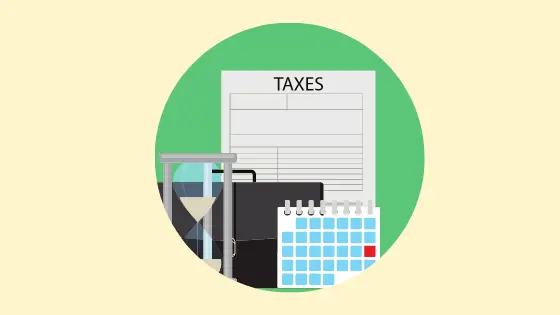How To Register a Franchise Business in the Philippines

Whether you are running a simple food cart or a large retail store, all franchisees need to go through the process of registering their business. If this is your first time doing this, the different requirements from the different government agencies might be overwhelming.
If it’s not your first time doing this, you’ll find that it’s a lot similar to registering any kind of business. There are just some things you need to consider for franchising registrations. We’ve prepared a guide here that you can follow to ensure that you don’t miss anything. After all, missing a requirement might mean losing money to penalties.
Read the main article: The Ultimate List of the Best Franchise Business Opportunities in the Philippines
Table of Contents
- Watch Video: How To Get Funding for Your Franchise Business
- Why You Need To Register Your Business When Franchising
- Things To Do Before Registering a Franchise Business in the Philippines
- How To Register Your Franchise Business: 4 Steps
- Additional Requirements
- How Much Does Registering a Franchise Business Cost?
- Tips & Warnings
- Frequently Asked Questions
- 1. Can I register my business before choosing a franchise?
- 2. How long does it take to completely register my franchise business?
- 3. Do I need to register my employees under SSS, PhilHealth & PagIBIG?
- 4. I am a novice in franchising a business. Can I opt not to register?
- 5. Which is the best business type for a franchise?
- 6. Can I convert my business structure from one type to another?
- 7. Do digital franchises or businesses without a physical location still need to register?
- References
Watch Video: How To Get Funding for Your Franchise Business
Why You Need To Register Your Business When Franchising
When franchising a business, there are three parties that need your complete business registrations. These are:
- The government agencies made the rules about these registrations. These include the Bureau of Internal Revenue (BIR), the Department of Trade and Industry (DTI), the Securities and Exchange Commission (SEC), and the local government office.
- Franchisors, the people who you get your franchise, need your business to be registered as part of their requirements. You can talk to them first and find out about the franchise’s details before registering.
- Lessors, the people you rent a space from, usually need your complete business requirements. This is especially true for large commercial establishments such as malls and offices.
Things To Do Before Registering a Franchise Business in the Philippines
You don’t have to rush the registration of your franchise business. In fact, there are a few things that you have to do first before you even think about registering. These are:
- Choosing your franchise. It’s pointless to register a franchise business if you haven’t chosen a franchise yet. It requires a lot of time to do your research. If you register early, you’ll only be imposing government fees on yourself that you don’t need to go through yet.
- Contact your franchisor. It’s a good idea to talk to your target franchisor and get more information about the franchise. They may even be able to provide support for business registrations.
- Find a location for your franchise. Even if you already have a franchise in mind, you shouldn’t register if you haven’t selected a location yet. Part of the requirements is a mayor’s permit which you can only get from the local government of your chosen location. Note that if your head office and franchise store are in different LGUs, you may need to register both. Aside from that, conducting a location study is one of the prerequisites of a successful franchise. Make sure not to skip it.
How To Register Your Franchise Business: 4 Steps
When it comes to business registration, franchises aren’t that different from other kinds of businesses. There are no additional government requirements, just some things you may need to consider.
1. Decide on Your Business Structure

Just like when registering any kind of business, franchisees also need to decide on their business structure. You can choose to be a sole proprietorship, a partnership, a corporation, or a one-person corporation.
- Sole Proprietorships are businesses that are owned by only one person. There are fewer registration requirements for sole proprietorships, and they also pay lower taxes. However, note that the law will not consider you and your business separate entities. It means that if your business has overdue liabilities, such as loans, it’s possible for debtors to get them from your personal assets.
- Partnerships are businesses co-owned by a few people who want to combine their strengths and resources. But they also share in the liabilities of the business. Note that just like sole proprietorships, debtors can go after the personal belongings of partners for any due liabilities.
- Corporations are businesses owned by many people, called shareholders, that have interests in the success of the business. It is considered a separate entity from its owners, meaning debtors cannot go after the personal belongings of its shareholders. However, this benefit comes with subjecting yourself to more regulations and paying higher taxes.
- One-Person Corporations are corporations that only have one shareholder. It has the same benefits and drawbacks as a corporation.
You should decide which business structure fits your situation the best. Take into consideration your objective, financial capacity, and stakeholders.
For example, if you are a sole owner, you might choose between a sole proprietorship or a one-person corporation. If you are confident you won’t need any loans, then a sole proprietorship might be better for you because of the easier process and lower taxes.
2. Register Your Business Name

Note that this is not the name or brand of the franchise you’ve chosen. You have to create a new name for your business. This is the name you will use when dealing with the franchisor, lessor, government, and other businesses.
a. For sole proprietorships
You only need to register with the DTI. You can use your own name if you want, but as a franchisee, it’s recommended to create a professional-sounding business name for your franchisor and lessor to see.
Registering with the DTI is easy and fast; you can even do it online. For DTI registrations, you need to choose the territorial scope of your business name from the following:
- Barangay;
- City/Municipality;
- Regional;
- National.
Your choice determines where your business name is valid.
For beginner franchisees, Barangay or City/Municipality are recommended. You can expand your scope in the future once you have grown your business.
b. For partnerships and corporations
You need to register with the SEC. They have different forms and requirements that you need to fill up, but they can also be done online. Check out our step-by-step guide for registering partnerships or corporations online.
Tip: Prepare at least 5 versions of your business name, whether you’re registering with the DTI or the SEC.
3. Register With the BIR

Regardless of the business structure you’ve chosen, you still have to register with the BIR. You can do this at the same time as applying for a business permit1.
- For sole proprietorships, complete BIR Form 1901. For partnerships or corporations, complete BIR Form 1903.
- Submit the forms together with the requirements to the Revenue District Office (RDO). An RDO is the local BIR unit that is assigned to your area. For franchises, you would generally want to register at the RDO where your head office is located and not where your branch will operate.
- Pay the registration fee.
- Get your Certificate of Registration (also called BIR Form 2303)
If you need more details about the BIR registration process, you can check out our complete guide here.
4. Apply for a Business Permit for Your Office and Store Location

Securing a business or mayor’s permit for your franchise is required for both your head office and store location. For beginner franchisees, it’s recommended to have both of them in the same location for less hassle and less taxes. To register at your LGU, you need to:
- Contact the LGU for their requirements and prepare them.
- Pay all the fees associated with your application.
- Have your location checked by the fire and sanitary departments.
- Get your business/mayor’s permit
If you want an idea of which documents you need to prepare, check out our complete business permit guide here.
Additional Requirements
- If you have employees, you need to register with the Department of Labor and Employment (DOLE), Social Security System (SSS), PhilHealth, and Pag-IBIG. This can be done easily in Philippine Business Registry (PBR) kiosks.
- Franchises related to financial services, like money transfers and pawnshops, may need to register with the BSP or Bangko Sentral ng Pilipinas.
- Educational franchises must work with the Department of Education (DepEd) and comply with their requirements.
How Much Does Registering a Franchise Business Cost?
1. For DTI Registration
It depends on the territorial scope you chose for your franchise:
- Barangay: PHP 230
- City/Municipality: PHP 530
- Regional: PHP 1,030
- National: PHP 2,030
2. For SEC Registration
It depends on the type of business structure.
a. For partnerships, the articles of partnership costs 1/5 of 1% of the partnership’s capital but not less than PHP 2,000.
b. For corporations, the articles of incorporation costs:
- Stock corporation with par value: 1/5 of 1% of the authorized capital stock but not less than PHP 2,000, or the subscription price of the subscribed capital stock, whichever is higher.
- Stock corporation without par value: 1/5 of 1% of the authorized capital stock computed at PHP 100 per share but not less than PHP 2,000, or the issue value of the subscribed capital stock, whichever is higher.
- Non-stock corporation: PHP 1,000.
It’s recommended to use the SEC’s registration fee calculator here.
For corporations, you also need to pay for the by-laws, which cost PHP 1,000.
You also need to pay a legal research fee (1% of the filing fee), a documentary stamp tax of PHP 30, and a name registration fee of PHP 100.
3. For BIR Registration
The total cost is PHP 1,360 inclusive of the annual registration fee, documentary stamp tax, registration of book of accounts, and sales invoice.
4. For Business/Mayor’s Permit
The costs depend on the LGU. It can be anywhere from PHP 300 to PHP 5,000. Larger cities typically charge higher than small municipalities. Note that you might need to register both your franchise’s head office and physical store’s location if they are different.
Tips & Warnings
- The timing of your registration is important, so don’t register too early. As a beginner franchisee, it might be tempting to get the time-consuming business registrations out of the way. However, if you register too early, you might be taking on a burden that you don’t even need yet.
- Once you have your store set up, display the documents required for compliance. These include the BIR certificate of registration, business permit, and plate. Choose a visible location in your store where they won’t be damaged.
- You might want to consider hiring a professional accountant who can complete the government requirements for you. They can also help you with the monthly, quarterly, and annual compliance documents. That way, you’ll be able to save time and use that time to focus on growing your franchise instead.
Related: How to Start a Franchise Business in the Philippines: A Definitive Guide
Frequently Asked Questions
1. Can I register my business before choosing a franchise?
Yes, but it is not recommended. After registering your business, you will need to start complying with the monthly, quarterly, and annual requirements. This is a burden you don’t need to tackle until you have firmly decided to open a franchise.
You might also ask, “Can I comply with one of the requirements first then delay the others?” The answer is yes but know that there is a specified time limit between registrations across the different agencies. If you don’t meet that time limit, you may need to redo a registration.
2. How long does it take to completely register my franchise business?
It takes roughly anywhere from two weeks to two months. For business name registration, the DTI registration is generally fast (usually less than a day). However, SEC registration takes time as they need to review your articles and by-laws. Applications can be rejected due to the business name, nature of business, and the other details in your articles. Your application will need more time if they need to be revised.
BIR registration takes about one to three days, depending on the availability of the officers. Lastly, the business permit may take anywhere from one day to two weeks. As per requirements, your location needs to be checked by the sanitary and fire departments. That process may take time depending on their availability.
3. Do I need to register my employees under SSS, PhilHealth & PagIBIG?
Yes, part of the legal requirements of Philippine businesses is to register your employees with the SSS, PhilHealth, and PagIBIG. You also need to prepare BIR’s withholding tax form for your employees’ income taxes. Note that you need to file this whether you have employees or not.
4. I am a novice in franchising a business. Can I opt not to register?
No, all businesses are required to register. Your franchisor might not accept your franchise application if you don’t have a registered business. The same can be said for your lessor.
Watch out for franchisors who do not require you to register a business. It might be a scam, and they are just trying to get your franchising fee.
5. Which is the best business type for a franchise?
The best business type depends on your needs and your situation. If there are multiple owners of the business, then sole proprietorship is already out of the discussion. You also need to think about taxes, compliance requirements, agreements between owners, and liability exposure. At the end of the day, the owners need to be the ones to decide on the structure based on what they are most comfortable with.
6. Can I convert my business structure from one type to another?
As your business grows, you might want to change your business structure from one type to another. In the Philippines, you can go from sole proprietorship to corporation and corporation to a one-person corporation2, among others. This can be a complicated process, and it is recommended to seek help from experts.
7. Do digital franchises or businesses without a physical location still need to register?
Yes, all types of businesses need to register. While you may not have a physical store, you can designate a head office, such as your home, as your business address.
Go back to the main article: How to Choose a Franchise Business (Plus Updated List of Best Franchise Business Opportunities)
References
- Ramirez, J. (2020). BIR ditches mayor’s permit as a registration requirement. Retrieved 28 December 2021, from https://mb.com.ph/2020/06/15/bir-ditches-mayors-permit-as-a-registration-requirement/
- Valdez, D. (2020). SEC now allows conversion to a one-person firm. Retrieved 28 December 2021, from https://www.bworldonline.com/sec-now-allows-conversion-to-one-person-firm/
Written by Rod Michael Perez
Rod Michael Perez
Rod Michael Perez is a freelance writer with over 7 years of experience in writing long-form articles, ad copy, and SEO content for local and foreign clients. He is also an aspiring startup founder and believes that the Philippines could be the next hub for startup culture. He takes care of his dog, a poodle-Shih Tzu hybrid, in his spare time.
Copyright Notice
All materials contained on this site are protected by the Republic of the Philippines copyright law and may not be reproduced, distributed, transmitted, displayed, published, or broadcast without the prior written permission of filipiknow.net or in the case of third party materials, the owner of that content. You may not alter or remove any trademark, copyright, or other notice from copies of the content. Be warned that we have already reported and helped terminate several websites and YouTube channels for blatantly stealing our content. If you wish to use filipiknow.net content for commercial purposes, such as for content syndication, etc., please contact us at legal(at)filipiknow(dot)net